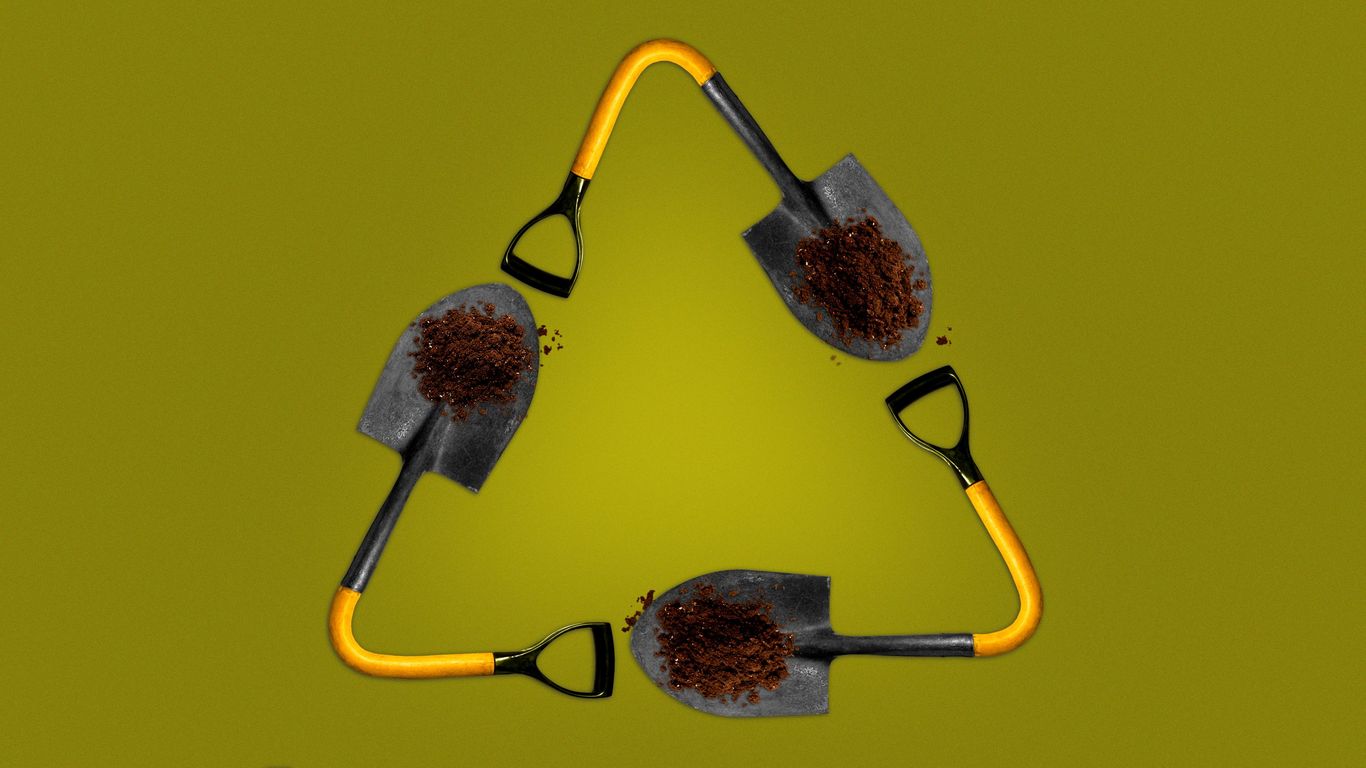Eco-friendly fertilizer maker Anuvia nabs $65 million Series D
Anuvia, a Florida-based maker of bio-based fertilizers for commercial agriculture, raised $65 million in Series D funding at a $225 million valuation, the company tells Axios exclusively.
Why it matters: Selling into Big Ag is big business, but Anuvia is targeting an industry that remains difficult for smaller companies and startups to break into, says Piva Capital managing partner Mark Gudiksen.
Driving the news: Riverstone Holdings and Gudiksen’s Piva Capital co-led the round, Anuvia CEO Amy Yoder tells Axios.
- Riverstone managing director Cynthia Kueppers and Gudiksen will join Anuvia’s board of directors.
- New investors Morgan Stanley Investment Management and the Mittal Family Office LK Advisers Limited joined existing investor Pontifax Global Food and Agriculture Technology Fund in the round.
State of play: Commercially available nitrogen fertilizers are one of the largest sources of greenhouse gas emissions from global agricultural production.
- Using organic food and animal waste instead of nitrogen fertilizers can cut the process’s greenhouse gas emissions by nearly 50%, Yoder claims.
How it works: Anuvia takes old chemical fertilizer plants sitting dormant, retrofits the plants to produce its eco-friendly fertilizer mix, and ships it out to distributors that can deliver the final product to farmers.
- Anuvia adds amino acids and other nutrients to the organic waste to create a mix that can help regenerate soil in addition to supporting crop yields.
- The mix is a dry product for high-acreage crops like corn or soybeans, but Yoder says the company is working on a liquid fertilizer for specialty crops.
- Anuvia is operating a 1.2 million ton capacity facility in Plant City, Florida, that it is leasing from The Mosaic Company. Mosaic previously used the plant to create phosphate-based fertilizers.
- “It’s the holy grail kind of thing in agriculture,” Gudiksen says.
Zoom out: Anuvia is built to act just like a normal fertilizer but with a smaller carbon footprint because farmers are often reluctant to take a chance on new products, Yoder says.
- If a food producer is operating a farm for 30 years, that often means they only have 30 chances to get their calculations right since they plant crops in a small window once a year.
- “It sells at the same price as normal fertilizer, so it doesn’t cost the farmer any more to do the right thing,” Yoder says.
Yes, but: Organic matter has its own carbon footprint, considering that all current or former living things are comprised of carbon, even when broken down and reused.
- Other forms of sustainable soil technology have often stuck to smaller farming operations to see what options work best at a highly localized scale in an attempt to come closer to carbon neutrality.
https://www.axios.com/pro/climate-deals/2022/04/25/anuvia-ecofriendly-fertilizer-series-d-funding






